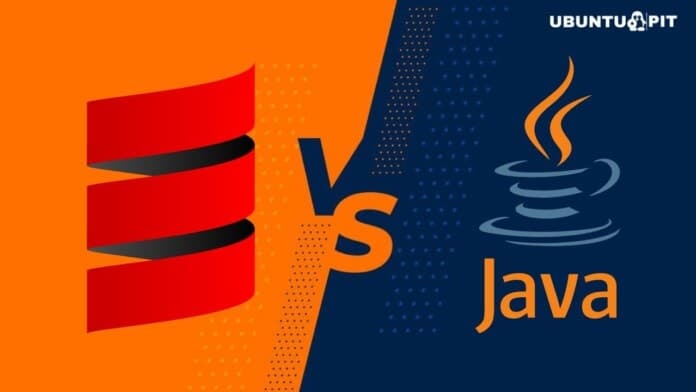Object-oriented languages are in demand for their security, flexibility, and abstraction. Java and Scala are two user favorites among these languages and are seen as competitions often. This article compares Scala vs. Java and discusses the things you should know about them before diving into the programming aspects.
Although programming languages have many common grounds, object-oriented languages tend to prepare learners to solve real-world problems. They are also easier to learn compared to structured languages such as C. Hopefully; you’ll have a more precise concept of OOP languages by the end of it – so keep reading!
Scala vs. Java: A Brief Overview
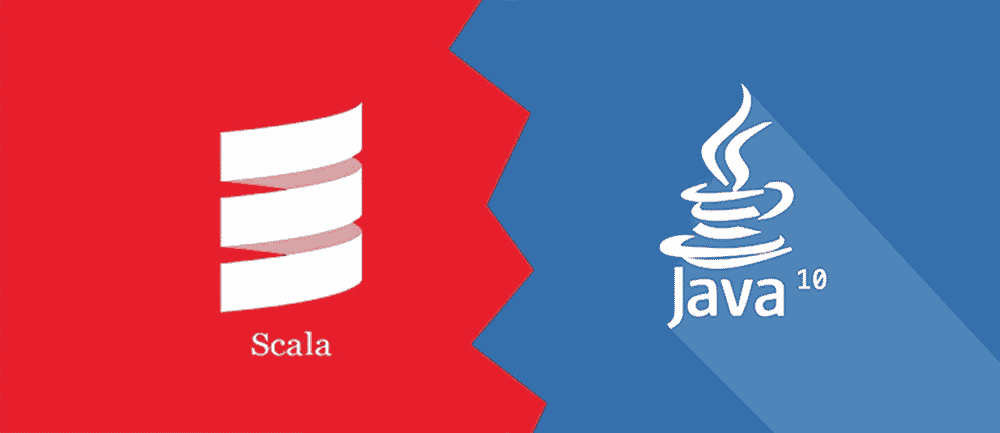 As we mentioned above, Scala and Java are pure object oriented-languages. However, before jumping onto the comparison, let’s understand more about how the two languages work by looking at a brief overview below.
As we mentioned above, Scala and Java are pure object oriented-languages. However, before jumping onto the comparison, let’s understand more about how the two languages work by looking at a brief overview below.
What is Java?
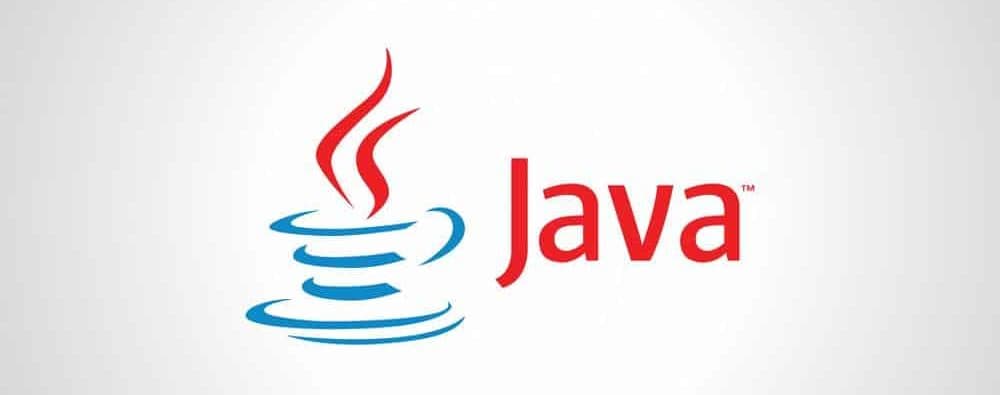 In 1995, Sun Microsystems launched Java as a high-level programming language that soon became popular due to its class-based and object-oriented nature. There’s very little that you cannot do with Java, and since it is a direct descendant of the C programming language, the two languages have a lot of similarities.
In 1995, Sun Microsystems launched Java as a high-level programming language that soon became popular due to its class-based and object-oriented nature. There’s very little that you cannot do with Java, and since it is a direct descendant of the C programming language, the two languages have a lot of similarities.
Now, Java is licensed under Oracle and is famous due to its reduced implementation dependency. It is easy to install and uses Java virtual machine and Java Development kit to give programmers all the tools they need in order to create a flawless application. So, let’s take a look at the pros and cons of Java below to have a better understanding of the language.
Pros of Java
- Java comes with abstraction, inheritance, and encapsulation features that give users restricted modification access, so security threats do not modify the core program.
- It is a platform-independent language that helps users run their codes on any device without worrying about compatibility.
- JVM provides automatic garbage collection by managing the memory, so codes are precise and memory efficient.
- RMI support allows users to perform distributed processing – so data sharing is more accessible among different computers.
Cons of Java
- Backend functions of JVM can slow down the performance of your code.
- Java does not come with a built-in backup system – one must use plugins or third-party extensions to back up their data.
- Although people can use Java to build versatile programs, the verbose syntax may seem complex and less time-efficient to programmers.
What is Scala?
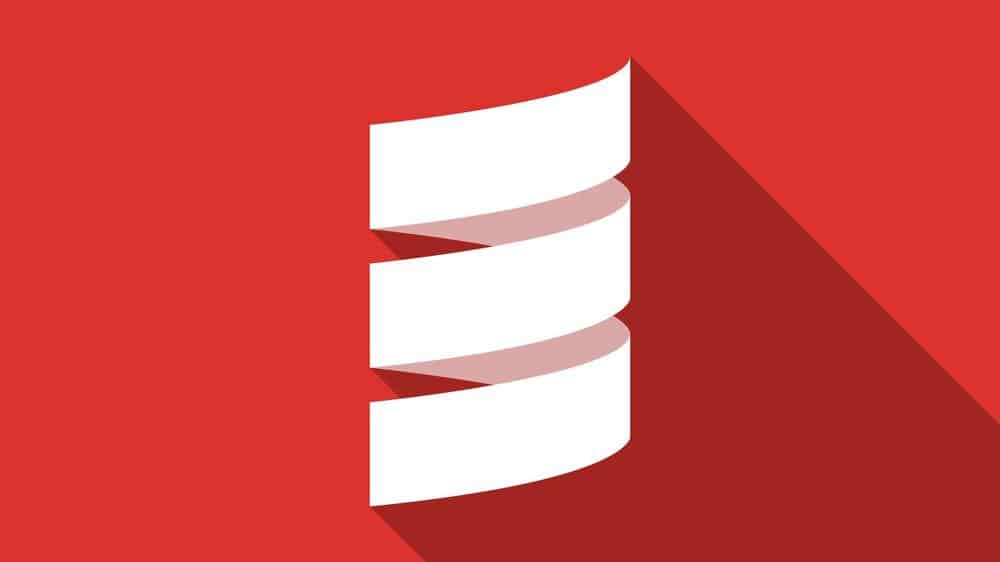 Martin Odersky first created Scala in 2001, although the language’s stable version was released in 2003. Many may claim Scala as a general-purpose programming language. However, much like Java, Scala is also an object-oriented language that helps users perform functional programming using JVM and can also work through static solid systems.
Martin Odersky first created Scala in 2001, although the language’s stable version was released in 2003. Many may claim Scala as a general-purpose programming language. However, much like Java, Scala is also an object-oriented language that helps users perform functional programming using JVM and can also work through static solid systems.
One of the main attractions of Scala is that it is a highly-concise language – for example, three lines with Scala can be equivalent to nine lines of Java code. Some may even suggest that Scala was designed to address Java’s lackings, and hence it can work smoothly with several existing Java libraries. So let’s learn a bit about the language’s pros and cons below.
Pros of Scala
- Scala is a highly scalable language that can create expandable or upgradable programs – it also means that your program will have fewer errors.
- Thread safety isn’t an issue with Scala as it involves inherently immutable objects.
- Mixins in Scala can help you execute multiple inheritances, which is beneficial in creating various design patterns.
- Scala is supported by tools such as Apache Spark, making it a favorite to data analysts.
Cons of Scala
- Although concise, many find the Scala verbose and syntax hard to grasp and implement.
- As the language works with JVM, there aren’t any optimized tail-recursions, so memory stacks aren’t efficiently managed.
- Since Scala is more of a hybrid language, programs created with Scala can never be fully functional or object-oriented.
How is Scala Similar to Java?
 Although we are nowhere near solving the Scala vs. Java debate, looking closer into the two languages, we can see how they are similar and why they are considered to be each other’s competitors.
Although we are nowhere near solving the Scala vs. Java debate, looking closer into the two languages, we can see how they are similar and why they are considered to be each other’s competitors.
Both Scala and Java use Java Virtual Machine to convert byte codes to machine-specific codes. Fun fact – Scala uses a scalac compiler much like javac in Java! They also use the same memory space and type system to run.
As object-oriented languages, they make programmers ready to battle real-world problems. Also, since both languages support abstraction over data, their programs are highly-secure. One can also use the same IDE for both Java and Scala, along with the same libraries.
Scala vs. Java: The 5 Significant Differences
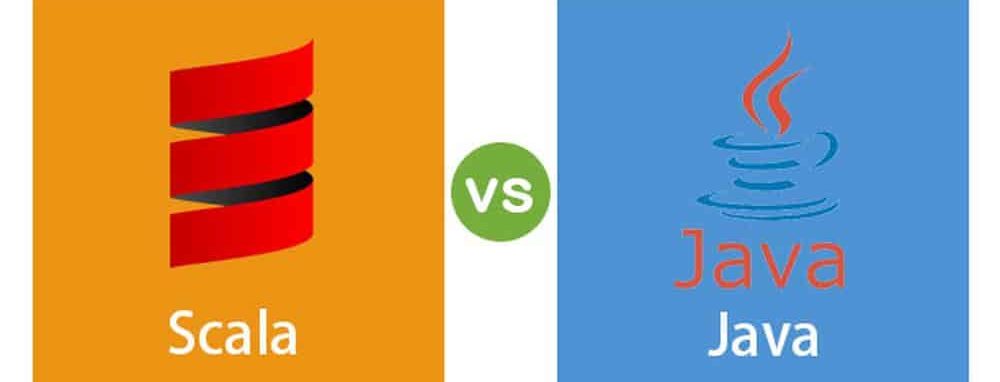 Now that you know the similarities between the two languages, let’s look at the six significant differences to come up with a clearer picture of how Scala vs. Java compares. Carry on reading!
Now that you know the similarities between the two languages, let’s look at the six significant differences to come up with a clearer picture of how Scala vs. Java compares. Carry on reading!
1. Features
Although both Scala and Java are object-oriented, Scala has features that point more toward statistical programming, with an actor model that also supports functional programming. On the other hand, Java has features has a thread-based model and are geared toward networking.
Scala also has features such as seamless interop that allows it to integrate with Java seamlessly, pattern matching features that match against class hierarchies, and lazy support to save resources. It is also a type-based language in contrast to Java.
2. Uses
One of the main differences between Scala and Java is their uses. Scala is a multi-paradigm language that lets users enjoy implementing its hybrid nature by creating projects that use both FP and OOP concepts.
On the other hand, the Java programming language is famous for multi-threading projects such as cloud-based and distributed applications, big data technologies, IoT applications, web and game development, and much more.
3. User-friendliness
Scala and Java have a ton of similarities which makes them perfect to use together for both object-oriented and structured projects. People often claim that Scala would be the language that replaced Java. However, it hasn’t yet, and that is due to user-based reasons.
While Java users may often come up with boilerplate codes, Scala users cannot do so due to its fixed syntaxes. In that regard, comparing Scala vs. Java shows us that Java is far more user-friendly than Scala, even though it takes a lengthy amount of time to write the codes.
4. Code conversion
Byte codes provide portability, allowing users to execute their codes on any platform. Source code alone does not let users have that flexibility. This means that languages that cannot convert source code to byte codes efficiently aren’t much compatible cross-platform.
Scala and Java both supported source code to byte code conversion with ease. However, Scala is slower when converting this source code to byte code than Java. As a result, building Scala codes take longer compared to Java.
5. Learning Curve
If you are a beginner, the probability of you learning Java is much more compared to learning Scala. Java is an older language than Scala, which is much more popular and well-rounded to work with.
However, the learning curve also matters since Java has a more straightforward syntax than Scala, even though Scala is more concise. Beginners often have a hard time remembering the tough Scala verbose, although it is shorter, so the learning curve for Scala seems comparatively steeper.
Scala vs. Java: Which is better?
There are many more factors that can help us choose Scala vs. Java. The ones we have discussed are enough to let you realize the differences between them. Which is better depends on your purpose.
If you work with big data and statistics that require both structured and object-oriented functions, Scala is the language you should go for. On the other hand, your perfect fit is Java if you wish to learn a high-in-demand language but aren’t much into data science.
However, if we were to come to a general conclusion of the comparison we just made, Java sounds like a better choice overall, and the good news is that the latest additions to Java include some FP aspects – so Java has better potential, whereas Scala seems half-baked.
Scala vs. Java: The Future
As we mentioned above, many thought Scala would be the best replacement for Java due to its interoperating features, allowing it to merge with almost any Java library or tool. However, Scala hasn’t yet taken over Java as many predicted.
The reason behind this is that although Scala started out with a lot of potentials, its spark has fizzled out quite over the years. Now it’s more like Java is taking over Scala by introducing features that already existed in Scala much better. So, the future for Scala seems dwindling, whereas Java isn’t going anywhere anytime soon!
Scala vs. Java: FAQs
 That was all for today. However, let’s address a few frequently asked questions on the topic before we wrap it up, shall we?
That was all for today. However, let’s address a few frequently asked questions on the topic before we wrap it up, shall we?
Q: How is Scala faster than Java?
A: The Scala compiler uses tail-call recursion that optimizes Scala codes to be compiled faster than Java. However, there are contradictions to that statement as some other aspects of Scala make it seem slower than Java.
Q: What is the relationship between Java and Scala?
A: Scala is a type-based language that runs on JVM, which can easily be used to integrate Java libraries and IDEs with Scala. Scala also converts its source codes into Java byte codes. So one can say that they are closely related.
Q: Why is Scala more object-oriented than Java?
A: Primitive data types, statistics, and immutable variables in Scala make it more object-oriented compared to Java. Scala also treats all code elements as instances of classes, whereas you have to declare classes in Java.
Q: Is Scala compatible with Java?
A: Yes! Scala is totally compatible with Java. It runs on JVM and can easily integrate with Java-based tools to execute functions much more quickly compared to Java. Also, translating Scala operations to Java, in many cases, gives better outputs.
Ending Note
Many Java users switch to Scala when they understand its true value. However, many also choose to stick with Java after experimenting with Scala. So, the question isn’t about which is better between Scala vs. Java, but which you like better! Our job was to introduce you to things you should know about Scala and Java. And we suggest you test them yourself to understand which works best for you. Leave us feedback and let us know what more you would like from us. Thanks!
